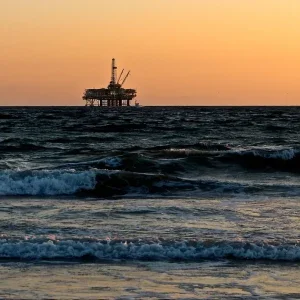
Meeting the recently established EU objective of achieving a minimum of 42.5% renewable energy by 2030, with an aspiration to attain 45% renewables, will necessitate a substantial expansion in wind power generation capacity. This expansion is anticipated to result in a growth from 204GW in 2022 to over 500 GW by 2030.
While the wind power industry has a storied history of success in the EU, its prospective growth trajectory is confronted by a distinct array of challenges. These challenges include issues like uncertain and inadequate demand, the sluggish and intricate permitting process, limited access to essential raw materials, elevated inflation and commodity prices, non-supportive national tender design, heightened competition from international rivals, and concerns regarding the availability of a skilled workforce.
The urgency of this situation demands swift action. Hence, in alignment with President von der Leyen’s declaration in her recent State of the Union address, the European Commission is now unveiling an European Wind Power Action Plan. This plan is designed to guarantee that the transition to clean energy aligns with industrial competitiveness and secures the continued success of wind power within Europe.
The Action Plan will play a crucial role in sustaining a robust and competitive wind energy supply chain. It aims to establish a transparent and reliable project pipeline, which will attract the essential investments and enable European wind energy to compete globally on equitable terms. This initiative is complemented by a Communication outlining the realisation of the EU’s offshore energy goals, with a specific focus on wind power. This communication builds upon the EU’s Offshore Renewable Energy Strategy, which was adopted three years ago.
The Action Plan outlines a set of immediate measures to be collaboratively implemented by the European Commission, Member States, and the wind industry, building upon existing policies and legislation. It focuses on six key areas:
- Acceleration of Deployment: To expedite the deployment of wind energy, the Commission is launching the “Accele-RES” initiative with Member States. This initiative will ensure the prompt implementation of revised EU renewable energy regulations, emphasising digitalisation in permitting processes and offering technical assistance to Member States.
- Improved Auction Design: In line with the proposed Net-Zero Industry Act and the reform of the Electricity Market Design, the Commission will assist Member States in designing auctions with clear, objective criteria that reward high-value equipment and ensure projects are executed fully and on schedule. The Action Plan also incorporates a cybersecurity risk assessment.
- Access to Finance: To accelerate investment and financing for wind energy manufacturing in Europe, the Commission will facilitate access to EU financing, particularly through the Innovation Fund. The European Investment Bank (EIB) will provide de-risking guarantees. Member States are encouraged to utilise the flexibility provided by the amended Temporary State Aid Crisis and Transition Framework to support wind manufacturing in the EU.
- A Fair and Competitive International Environment: The Commission is committed to ensuring that the wind sector can operate on a level playing field. This involves monitoring potential unfair trade practices benefiting foreign wind manufacturers and using trade agreements to facilitate access to foreign markets while promoting EU and international sector standards. The Commission will engage with investors to identify and address investment obstacles.
- Skills: Large-Scale Skills Partnerships for Renewable Energy will be instrumental in developing skills development projects. The Commission, with the Net-Zero Industry Act, will facilitate the establishment of European net-zero industry skills academies, including one dedicated to the wind sector. These academies will create learning content and materials and aim to train 100,000 learners within three years of establishment.
- Industry Engagement and Member States Commitments: The Commission will collaborate with Member States and the wind industry to establish an EU Wind Charter aimed at enhancing the conditions for the European wind industry to maintain its competitiveness.
Offshore wind energy is poised to play a pivotal role in the European Union’s climate and energy objectives in the coming years. Building on the Offshore Renewable Energy Strategy established in 2020, Member States have recently agreed on ambitious new targets for offshore renewable energy generation by 2050, with interim goals for 2030 and 2040, each tailored to one of the EU’s five sea basins.
As of 2022, the combined offshore installed capacity of the EU-27 was 16.3GW. To bridge the gap between the 111GW pledged by Member States and the 2022 capacity figure, an average of nearly 12GW per year must be installed. This is a substantial increase compared to the 1.2GW added in the previous year, underscoring the need for accelerated growth in this sector.






